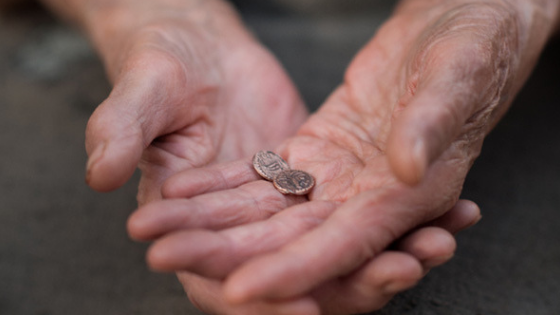
23rd Sunday in Ordinary Time Year A (10 September 2017)
Lectionary readings: Ezek 33:7-9; Ps.95; Rom 13:8-10; Mt 18:15-20
Theme: Respectful Fraternal Correction, Discipline and Reconciliation.
A phrase we hear all the time, “Am I my brother’s keeper?”. It is an easy and convenient way to wash our hands of involvement with others, even among family members. The phrase, occurs in the context of the story of Cain and Abel in Genesis 4:1-9. Cain killed his brother Abel, the Lord knowing full well what had happened, asked Cain where Abel was. Cain’s response was, “I do not know. Am I my brother’s keeper?” The moral of the story of the “Good Samaritan… who is my neighbour” flows light on the meaning of word “keeper”. The nature of the “keeper” or keeping is something God rightfully demands of everyone, on the ground of justice and love. We are indeed to be our brother’s keeper.
“For where two or three are gathered in my name, there am I among them” (Matthew 18:20). We know there are different layers and facets in excavations in finding out the meaning of a text. Context dictates everything when it comes to hermeneutics (the art of interpretation). In Deuteronomy 19:15; 17:6; Nm 35:30, “A sole witness is not enough to condemn anyone… only by the testimony of two or three witnesses can a case be resolved”. Everett Fox, on the multiple witnesses and its gravity stated, “In keeping with the biblical idea of ‘equity’ (Heb. tzedek), that is, fairness and balance in judgement, a false witness suffers the same punishment as would have befallen the innocent person whom he accused”(Fox 936).
I will take it that the context of Mt.18:15-20 is about forgiveness, discipline and reconciliation which is the concept of Mt. 18:21-35. In the modern terms, we hear how many times must I forgive my brother, “a million times”, Jesus is saying, 70 times 7, meaning endless. To make a response, seeking forgiveness and reconciliation, wholeness to be restored, the process is one to one, take two or three, or the church community will go to the one being charged. This is the meaning of “where two or three are gathered in my name, there I am among them”.
The second reading (Rom 13:8-10), reminds us of the care and the love for the neighbour. Paul quotes the Old Testament (Lv 19:18) and sees love as the unifying principle behind all laws and commandments. “Love does no evil to the neighbour,” even though an honest and respectful fraternal correction may cause some necessary pain. Correction is always to be done in the spirit of love with the goal of reconciliation.
Reconciliation in the light of the Joseph and his brothers, Genesis 45. After Judah’s impassioned plea on behalf of Benjamin and their father (Gen 45:18-34), Joseph saw that his brothers had truly repented. In tears, he revealed to his brothers, “I am Joseph your brother”.
“Am I my brother’s keeper?” in the language of Human Rights, Rights and Law, caring for one another, is everyone’s responsibility. “Duty of care may be considered a formalisation of the social contract, the implicit responsibilities held by individuals towards others within society. It is not a requirement that a duty of care be defined by law, though it will often develop through the jurisprudence of common law.” en.m.wikipedia.org.
For Reflection and Discussion: In my personal journey, how am I with regards to Respectful Fraternal Correction, Discipline and Reconciliation.
Bibliography: W.G. Plaut, (ed.) The Torah (NY 1981); Darton, Longman &Todd Ltd, The Jerusalem Bible (London 1974); Everett Fox, The Five Books of Moses (NY 1997)
This week’s Sunday Commentary was prepared by
Fr. Aliki A. Langi, Bat Kol Alum 2005, Gladstone, Australia
Email: 1alikilangi@tpg.com.au
[Copyright © 2017]
……………..…….……………………………………
PLEASE NOTE: The weekly Gospel commentaries represent the research and creative thought of their authors, and are meant to stimulate deeper thinking about the meaning of the Sunday Scriptures. While they draw upon the study methods and sources employed by the Bat Kol Institute, the views and conclusions expressed in these commentaries are solely those of their authors, and do not necessarily represent the views of Bat Kol. Questions, comments and feedback are always welcome.
….……………………………………………………
~~1983-2017~~
Bat Kol Institute for Jewish Studies, Jerusalem
“Christians Studying the Bible within its Jewish milieu, using Jewish Sources.”
Website: www.batkol.info; gill@batkol.info



